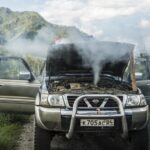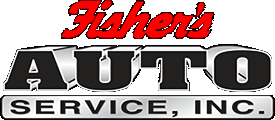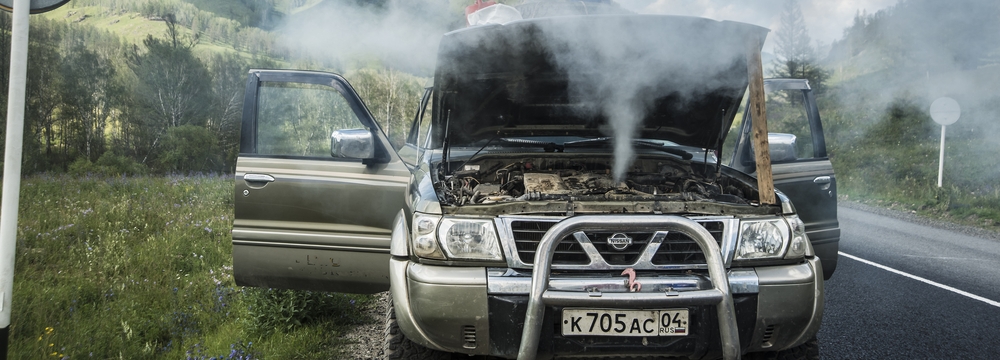 Summer travel is always popular, and this year is no exception. If you’re planning a road trip this year, be sure to prepare your travel companions and your car for the high temperatures. Pack your sunscreen, sunglasses, and plenty of water to stay hydrated. Ask yourself, is my your car engine overheating? Then schedule an auto maintenance service to check that the coolant is up to the job. Let’s also review some additional maintenance tips and safety suggestions to help you stay safe on the road this summer..
Summer travel is always popular, and this year is no exception. If you’re planning a road trip this year, be sure to prepare your travel companions and your car for the high temperatures. Pack your sunscreen, sunglasses, and plenty of water to stay hydrated. Ask yourself, is my your car engine overheating? Then schedule an auto maintenance service to check that the coolant is up to the job. Let’s also review some additional maintenance tips and safety suggestions to help you stay safe on the road this summer..
How To Spot An Overheating Car
Recognizing the signs of an overheating engine early can help save you from expensive repairs.
- Burning smells from the engine
- Dashboard warning lights
- High-temperature gauge reading
- Leaking fluids (coolant or engine oil)
- Steam or smoke streaming from under the hood
- Ticking or knocking sounds from the engine
What Causes A Car Engine To Overheat?
Your vehicle’s cooling system circulates coolant throughout the engine, absorbing heat and dispersing it into the air. Monitoring coolant levels is vital for the well-being of your car. However, there are tons of other moving parts that can wear out or break, causing your car engine to overheat.
Broken Thermostat
The thermostat regulates your vehicle’s engine temperature and controls the circulation of coolant through the cooling system. The thermostat triggers the opening and closing of a valve to allow coolant into the engine. A broken or stuck thermostat will alter the correct coolant levels in the car engine, resulting in overheating.
Clogged Radiator
Coolant moves through the radiator after absorbing heat from the engine. The radiator’s cooling fan moves air over the radiator to cool the fluid inside it. Coolant contains chemical additives that the engine consumes over time. Old coolant turns caustic once those additives are used up. Old coolant cannot absorb heat, lubricate effectively, or reduce corrosion, so sludge accumulates in the radiator. Your vehicle’s radiator can clog or malfunction, causing the engine to overheat for several reasons:
- Cracked radiator cap
- Leaking hose, gasket, or seal in the cooling system
- Corrosion, rust, or sludge buildup from old coolant
Damaged Cooling Fan
The radiator can only cool down hot coolant when air is moving over it. When your car is idling, a cooling fan keeps air moving across the radiator to cool the engine. A damaged fan can increase the chances of your car engine overheating, especially during warmer weather.
Dirty Air Filter
Combustion engines require a large amount of air to provide the correct air-fuel mixture for combustion. A dirty air filter may cause the temperature of your car’s engine to rise and, eventually, overheat.
Faulty Water Pump
The water pump cycles coolant through the cooling system. A faulty water pump will alter the coolant delivery rate to the car engine. Inadequate coolant levels moving through the engine will cause it to overheat. Whirring, whining, and clicking sounds may indicate your car’s water pump is failing.
Loose Serpentine Belt
The serpentine belt provides power to several of your car’s components, including the water pump. If the belt is loose or damaged, it may not supply adequate power to the water pump. A slowly moving water pump does not pump enough coolant through the engine to cool it sufficiently.
Low Coolant
If the coolant level is low, there may not be enough liquid in the system to remove heat. You can generally resolve this problem by adding more fluid (antifreeze + distilled water), but make sure to check for leaks.
Old or Low Engine Oil
Low engine oil can contribute to your engine overheating. Engine oil acts as a lubricant, allowing moving parts to move with less friction. Low engine oil levels mean that the moving parts create more friction, which in turn raises the engine’s temperature.
Auto Maintenance Tips
Regular auto maintenance can prevent most car engine overheating issues. Your driving style can also impact how well your car performs. Whenever possible, avoid aggressive driving and note any changes in vehicle performance while towing, navigating steep hills, or in extreme temperatures (like driving in the desert or heavy traffic)..
Coolant Flush
Keep an eye on your coolant levels, and inspect your cooling system for leaks. Look under your car for puddles of antifreeze and check hoses for cracks or wear. Small leaks can quickly become big problems. Schedule a coolant flush every five years or 100,000 miles. A cooling system flush removes old coolant and contaminants from the system. Fresh coolant helps maintain proper engine temperatures and prevents corrosion and sludge buildup in your car’s cooling system.
Don’t Overload Your Car Engine
Air conditioning: Driving in extremely hot weather can make it difficult for the cooling system to cool your engine efficiently. Consider turning off the AC and opening the car windows for a short time to reduce stress on your engine. You can also plan road trips to avoid driving during the hottest time of day. Use that time to have lunch or stop at local attractions along your route.
Towing: Towing can cause overheating if you drive in heavy traffic for extended periods or experience a component malfunction. Towing more than your auto manufacturer’s recommended weight limit can lead to premature engine wear and overheating.
Traffic: In hot weather, driving in stop-and-go traffic can quickly cause the car engine temperature to rise. If you notice the temperature gauge go up, pull over (or exit the highway) and park your vehicle in the shade to cool down before resuming your trip.
Routine Oil Changes
Following your manufacturer’s recommended maintenance schedule can help catch minor issues before they develop into major problems. Specifically, oil changes cover many of the common fluids and components that cause your engine to overheat.
- Fresh engine oil & oil filter
- Test coolant quality and refill if low
- Check for fluid leaks
- Inspect air filter
Auto Maintenance in Kirkland, WA
Fisher’s Auto Service supplies a quality alternative to the quick-lube, chain-store tire shops, and dealership service departments. We offer the additional convenience, integrity, and personal attention of a locally-owned business in Kirkland, Washington. Routine auto maintenance, including an oil change, coolant flush, and dirty air filter replacement, can help identify minor issues early. Changing your vehicle’s dirty fluids is one of the most important things you can do to reduce car engine overheating issues.
Schedule An Engine Overheating Service
Scheduling routine auto maintenance according to your auto manufacturer’s recommended intervals helps keep your vehicle running smoothly. Give us a call at (425) 823-4441 or visit our website to make an appointment.

